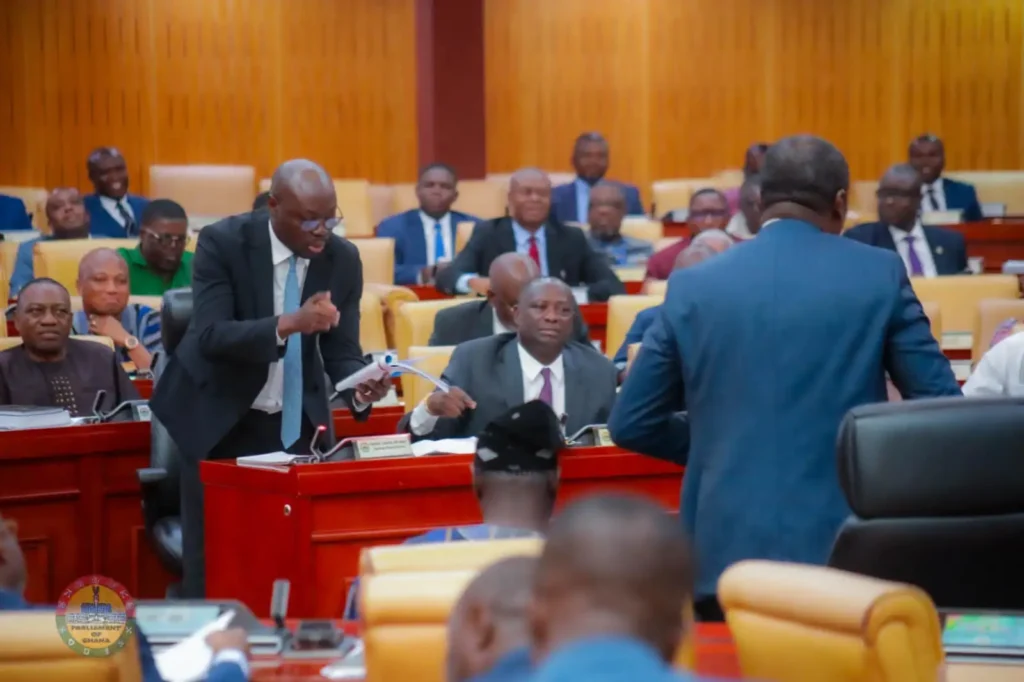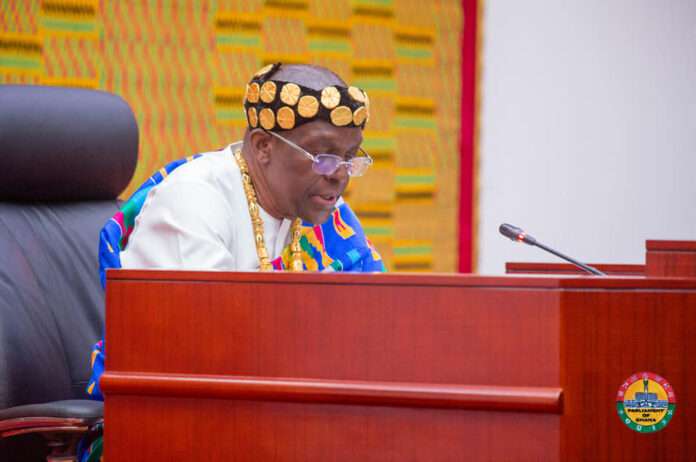Esq. Carruthers Tetteh, a legal practitioner and law lecturer at the University of Cape Coast (UCC), has expressed the view that despite the ongoing absence of the NPP caucus in parliament, legislative business can still proceed effectively.
He explained that with the NDC holding 136 seats—if the speaker insists on his previous ruling—or 137 seats—if the speaker follows the Supreme Court’s ruling—parliament can still function and carry out its responsibilities.
Essentially, Esq. Tetteh’s point implies that there should not be any economic or governance consequences should the NPP continue its boycott of Parliament as the NDC has the required number to conduct parliamentary business regardless.
“…for purposes of decision-making or determination of matters, At least half of all the members of parliament must be present, and the votes of the majority of the members present must be secured to determine the matter (Article 104)”
Esq. Carruthers Tetteh
In an interview with Vaultz News, Esq. Tetteh elaborated that, in his view, the Supreme Court’s order regarding the vacant seats in parliament was a proper exercise of its exclusive original jurisdiction.
He pointed out that the Court acted within its constitutional authority to interpret and enforce the law, specifically referencing Articles 2 and 130 of the 1992 Constitution of Ghana.
Regarding the speaker of parliament’s allegation of collusion between the judiciary and the executive, Tetteh expressed the belief that the claim lacks merit.
He noted that there is no substantial evidence to support such an accusation.
He further emphasized that all three branches of government are carrying out their respective duties in accordance with the law, and any suggestion of impropriety cannot be justified without concrete proof. “I don’t think there is any cause for alarm”

Tetteh also explained that because parliament has not formally convened for the Speaker to properly address the house on the matter concerning the court’s ruling, it is not accurate to claim that the Speaker has committed contempt of the Supreme Court.
“Contempt of court is catered for by Article 19(12) of the Constitution. There are two types of contempt: Civil contempt and criminal contempt.
“Whereas civil contempt deals with failure to Comply with an order of a count, criminal contempt deals mainly with interference with the due administration and dispensation of justice”.
Esq. Carruthers Tetteh
He further clarified that if the accusation of contempt of court by the NPP against the Speaker is substantiated, the Speaker could be liable for civil contempt.
Parliamentary Controversies Not Linked to Executive Interference
Furthermore, Esq. Carruthers Tetteh expressed that the ongoing controversy is not directly related to the executive, as they have not actively intervened in the dispute between the judiciary and the legislature.
He suggested that if the Speaker of Parliament complies with the court’s ruling, it would go a long way toward settling the controversy, restoring public confidence, and reinforcing the perception that each branch of government is adhering to its constitutional role.
Tetteh noted that such compliance would reassure the public, particularly as the underlying matter has yet to be fully adjudicated.

“The continued resistance of the speaker will undermine the authority of the Judiciary. This will drastically affect the trust people have in our courts.
“I think that going forward, the functions of all the arms of government should be clearly defined beyond what the black-and-white letter of the Constitution states”.
Esq. Carruthers Tetteh
He further stated that, in this case, each branch of government will understand its limits and responsibilities. “This will to a very large extent, reduce, if not prevent, some of these issues”.
Esq. Tetteh further emphasized that, with only a month left before the general elections, he hopes and expects the Speaker of Parliament will address the house at the next sitting in alignment with the Supreme Court’s ruling.
He noted that such compliance would bring clarity and stability during this crucial period.
Additionally, Tetteh expressed his hope that the Supreme Court will swiftly begin proceedings on the substantive issue regarding the vacant seats and conclude them within a reasonable timeframe before the December 2024 elections.
This, he suggested, would help prevent any lingering uncertainties and foster public confidence in the legal process. “The times we find ourselves in require a higher standard of patriotism and nationalism beyond party colors”.
Accordingly, Tetteh recommended that all parties involved in the current issue should act with the nation’s long-term interests in mind before making any decisions.





















